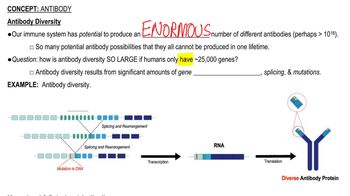Use the following choices to answer questions 1 and 2:
a. hemolysis
b. hemagglutination
c. hemagglutination inhibition
d. no hemolysis
e. precipitin ring forms
Patient’s serum, influenza virus, sheep red blood cells, and anti-sheep red blood cells are mixed in a tube. What happens if the patient has antibodies against influenza?




